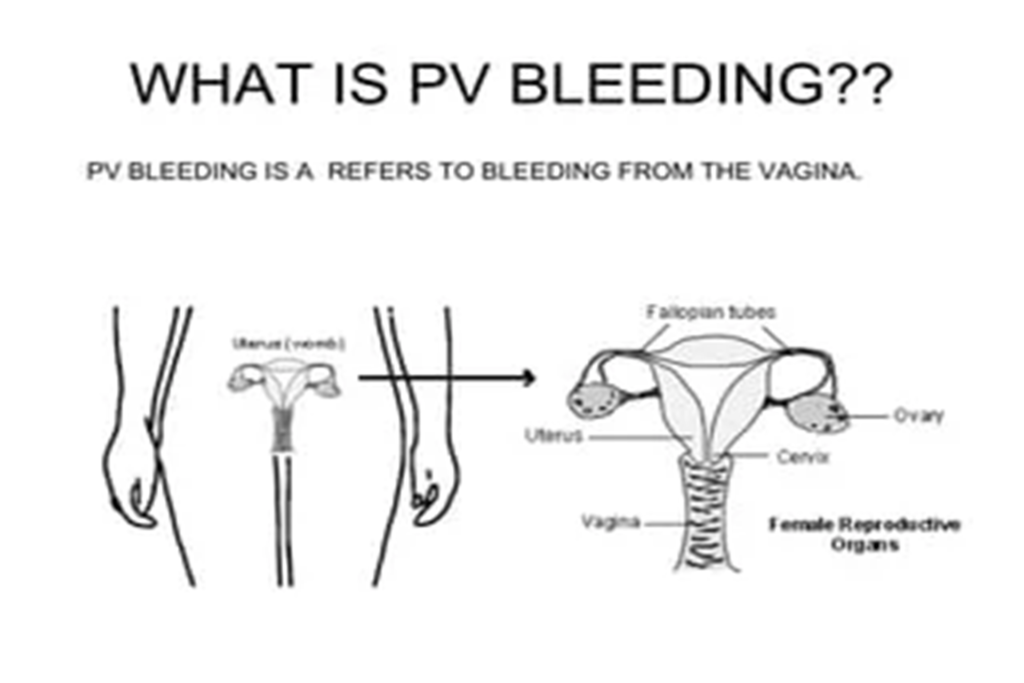
Overview:
Bleeding per vaginam (P/V), or abnormal vaginal bleeding, refers to any bleeding from the vagina outside the normal menstrual cycle. It can occur at any age and may result from a variety of factors, including hormonal imbalances, infections, and underlying health conditions. Bleeding P/V can range from light spotting to heavy bleeding and should be evaluated by a healthcare provider to determine its cause and appropriate treatment.
Causes:
Causes of bleeding P/V vary widely and can include hormonal changes, polyps, fibroids, infections, or trauma. In some cases, bleeding P/V may be a sign of more serious conditions, such as cervical or uterine cancer, endometrial hyperplasia, or pregnancy-related issues. Use of certain medications or contraceptives, like hormonal IUDs, may also lead to irregular bleeding.
Symptoms:
Symptoms include unexpected bleeding between menstrual periods, unusually heavy menstrual flow, prolonged bleeding, or spotting after intercourse. Women may also experience abdominal pain, fatigue, or dizziness, depending on the severity and cause of the bleeding. Persistent or heavy bleeding requires immediate medical attention to rule out serious conditions.
Treatment:
Treatment for bleeding P/V depends on its cause. Hormonal therapy, such as birth control pills, may be prescribed to help regulate bleeding if caused by hormonal imbalances. Antibiotics are used if an infection is present. In cases of fibroids or polyps, surgical removal may be recommended. For more serious causes, such as malignancies, specialized treatments may be necessary.
Precautions:
Women experiencing unusual or heavy vaginal bleeding should seek medical consultation, especially if bleeding is accompanied by severe pain, dizziness, or fatigue. Keeping track of bleeding patterns, including timing, flow, and related symptoms, can help healthcare providers diagnose the underlying cause. Avoiding self-medication and seeking timely treatment are essential for health and safety.
Prevention:
While not all cases of bleeding P/V can be prevented, maintaining regular gynecological check-ups, practicing safe sex to reduce infections, and following prescribed treatments for any existing reproductive health issues can help. A healthy lifestyle with balanced hormones also supports menstrual health and reduces the risk of abnormal bleeding.
For comprehensive care for bleeding P/V, visit KDM Hospital in Lucknow, where experienced gynecologists provide tailored diagnostic and treatment services for abnormal bleeding. The hospital is equipped with advanced diagnostic tools and offers budget-friendly options, Ayushman card acceptance, ambulance services, and 24/7 doctor availability to ensure quality care for women’s health needs.
